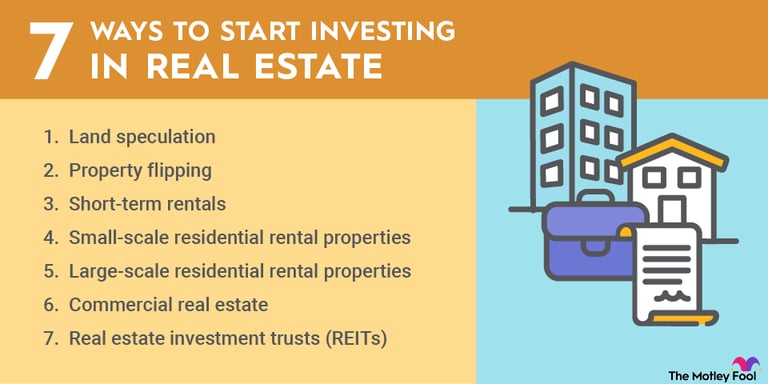REI: A Few of the Basics
Before we begin rambling on and on about our favorite assets, let's begin with some common info on what real estate investing is.
PUBLISHED
1/21/20253 min read


Real estate (RE) is its own asset class that should be at least a part of a well-diversified investment portfolio (Investopedia, 2024). In fact, RE is the largest asset class in the world (Kirk, 2023).
The RE market is characterized by low volatility, excellent diversification potential, hedges against inflation, and (except for REITs) the ability to leverage debt to finance larger RE purchases. While most millionaires don't become millionaires through real estate investment (REI), REI can be one of many important components to wealth building (Sohns, 2024).
Common Ways to Invest in RE:
Own rental property for rental income
"Fix and flip" (purchase, renovate, and sell) property for a profit
Invest in REITs (real estate investment trusts, public corporations/trusts that purchase, operate, and sell income producing properties and pay dividends)
Invest in a real estate investment group (REIG)
Invest in a real estate limited partnership (RELP), an entity formed to buy and hold a property or portfolio of properties, for a finite number of years
Invest in real estate mutual funds
Invest in crowdfunding/online REI platforms (note: these tend to be illiquid with lockup periods)
How to Add RE to an Investment Portfolio:
Buy properties directly
Buy properties (or shares of them) indirectly, such as through REITs or funds that invest in REITs or RE operating companies
Pros & Cons
RE can be a sound investment and has the potential to provide a steady income and build wealth. However, a significant drawback of REI is the illiquidity of some assets (the relative difficulty in converting an asset into cash and vice-versa). Illiquidity can be problematic if you need money from your investments right away.
Some real estate transactions take a lot more time to be completed than stock or bond transactions. Stock and bond RE assets offer better liquidity, market pricing, and completion time than direct REIs, but have lower diversification benefits and higher volatility.
Managing tenants can be difficult!
Key Steps
Keep your expectations reaslistic
Do your due diligence (research) before making any decisions
Become familiar with RE terminology
Be willing to make long-term, calculated decisions
Develop your "soft skills" for interacting with others
Take courses to earn certificates, for valuable credentials
It may be helpful to have a strong social media presence for networking
Types of RE:
Residential property
Commercial property
Land
Career Paths for Aspiring RE Professionals:
Real estate agent
Property manager
Real estate investor
Remember: Not all REIs are low risk, quick, or easy. Some REIs require significant time, skill, and capital (money!).
As professionals without RE credentials who don't have a lot of time or capital, how do we invest in real estate? Visit us periodically for information on the low time, skill, and capital ways we prefer.
Happy New Year!
Wyndham Ashley Capital Group, Corp.
Disclaimer: As with everything, do your research and do your due diligence when investing. This corporation is not credentialed in financial advising.
Investopedia. (2024). A beginner's guide to real estate investing: Different ways to invest in real estate. Retrieved from https://www.investopedia.com/mortgage/real-estate-investing-guide/
Kirk, V. (2023). Real estate investing for beginners: 5 skills of successful investors. Harvard Division of Continuing Education. Retrieved from https://professional.dce.harvard.edu/blog/real-estate-investing-for-beginners-5-skills-of-successful-investors/
Sohns, T. (2024). Unmasking the real estate wealth myth. Due.com. Retrieved from https://www.nasdaq.com/articles/unmasking-the-real-estate-wealth-myth






Literacy. Investment. Philanthropy.
Specializing in financial wellness and investment education, tools, opportunities, and philanthropy.
Email: exec@WyndhamAshleyCapitalGroup.com
Phone: (314) 806-3515
Wyndham Ashley Capital Group, Corp. © 2026. All rights reserved.
